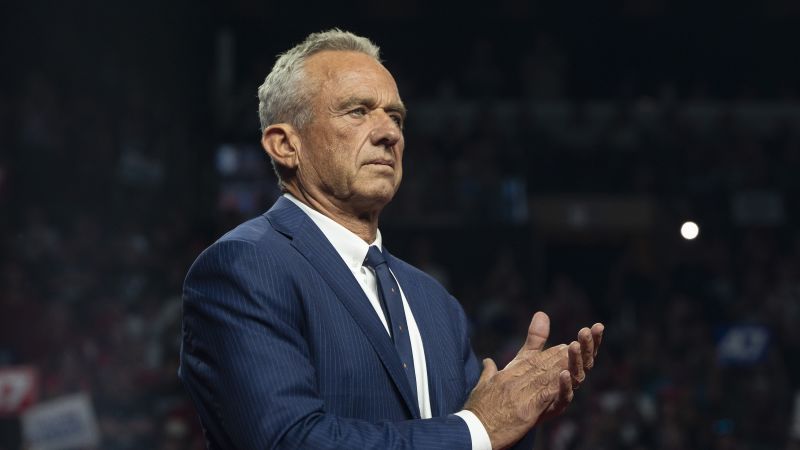The Supreme Court rejected Robert F. Kennedy Jr.’s request to appear on New York’s presidential ballot, despite him suspending his campaign and endorsing Donald Trump. Kennedy argued that voters had a constitutional right to vote for him, regardless of his campaign status, but state election officials removed his name due to including an invalid address on his petition. Officials claimed that accommodating Kennedy’s request would severely disrupt election processes and cause delays in mailing overseas ballots. They stated that candidates should provide accurate information on their filings, including their home address.
Kennedy suspended his campaign in August and endorsed Trump, pledging to remove his name from battleground states and encouraging supporters to vote for him in non-competitive states. Despite withdrawing his name from some deeply Republican states, Kennedy made direct appeals to his supporters to vote for Trump in various locations, including urging attendees at a rally in Walker, Michigan. He emphasized the importance of voting for Trump to achieve his goals of ending wars, chronic diseases, censorship, surveillance, and other issues he aimed to address as a candidate.
Lower courts had previously rejected Kennedy’s challenges to New York’s decision to remove his name from the ballot, and the Supreme Court denied his emergency appeal without comment or noted dissents. This case highlights the potential spoiler role of third-party and independent candidates in close elections, with another recent appeal involving the Green Party candidate, Jill Stein’s efforts to be on the ballot in Nevada also being denied by the Supreme Court. The rejection of these appeals underscores the challenges faced by third-party candidates in gaining access to presidential ballots and the impact they can have on election outcomes.
State election officials argued that accommodating Kennedy’s request would severely disrupt the election process and cause delays in mailing overseas ballots. They contended that candidates should provide accurate information on their filings, including their home address, as a minimal burden. Kennedy’s argument that voters had a constitutional right to vote for him regardless of his campaign status was countered by concerns about voter confusion and missed federal deadlines for mailing overseas and military ballots. This case underscores the complexities of ballot access requirements and the difficulties faced by third-party and independent candidates in navigating the election process.
Kennedy’s decision to suspend his campaign and endorse Trump raised questions about his motivations and strategic goals, particularly in backing a candidate from a different party. While he initially pledged to remove his name from battleground states and encourage supporters to vote for Trump in non-competitive states, Kennedy made more direct appeals to his supporters to vote for Trump in various locations. The Supreme Court’s rejection of his appeal highlights the legal challenges faced by third-party candidates seeking access to presidential ballots and the potential impact of their presence on election outcomes. Overall, the case of Robert F. Kennedy Jr. underscores the complexities and controversies surrounding third-party and independent candidates in the political landscape.


